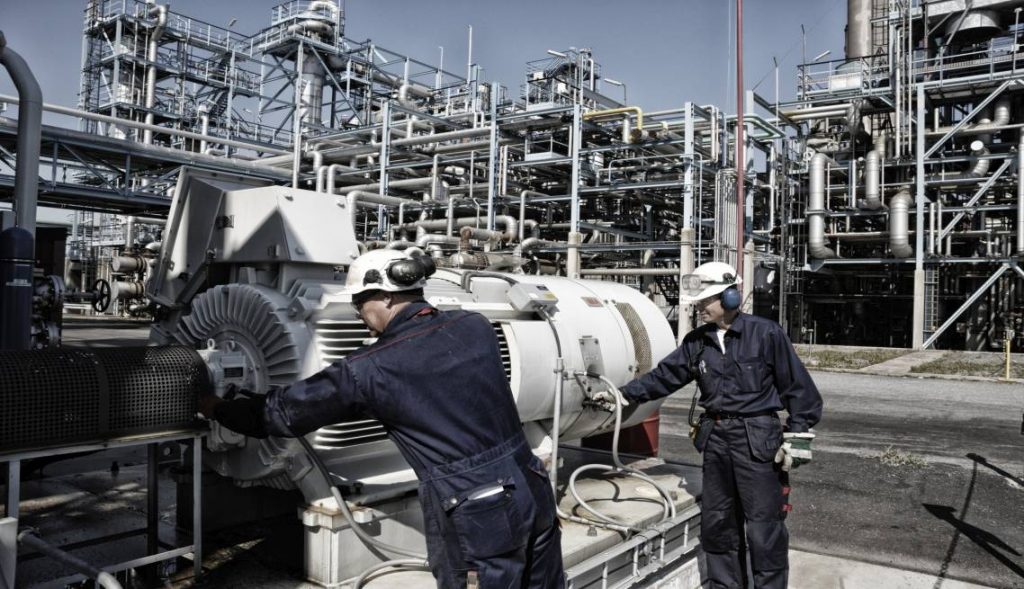Introduction
The scrutiny faced by the oil and gas industry has never been greater. While the industry still accounts for the majority of the world’s energy generation, opponents contest the use of such fossil fuels and such. Climate change and greenhouse gas emissions legislation, along with concern over the future of hydraulic fracturing, pose major problems to the oil and gas industry and with more households and businesses tightening their belts to make every penny count amidst an ongoing recession, oil and gas companies must address many of the same concerns.
Ultimately, the fact remains that without the industry, the lights would go out and our cars would stop running. That said, the industry is under incredible stress and the risk factors affecting it are complex. While many oil and gas companies have seen their own financials improve, the financial stability of partners, customers, vendors and suppliers remain top risk factors. This all means that the need to manage project risks effectively has never been of great importance to the industry as a whole.
This Project Risk Management training seminar provides a structured approach to managing project related risks that ensure value is protected, and most importantly, minimizes the chances of major events affecting not only the project but the organization to the benefit of all.
This training seminar will highlight:
- Current issues within the Oil & Gas Industry that need to be tackled
- Typical risk responses used by the Oil & Gas Industry megaprojects
- Risk ownership as a critical part of risk management
- The importance of communication and escalation in Oil & Gas projects
- Key qualitative, semi-quantitative and quantitative risk responses
Objectives
This training seminar will take delegates through a real-life Oil & Gas project as a case-study, working with the case-study to develop and evaluate using industry best-practice tools. This method will provide a real insight into the challenges, and strengths that a positive Risk Management process can provide in such an uncertain industry.
At the end of this training seminar, participants will:
- Develop key risk management competencies such as developing an appropriate risk process for an organization in the oil & gas Industry
- Understand the key roles, responsibilities and activities associated with project risk management
- Understand how best to apply appropriate tools and techniques to optimise risk management for your projects
- Learn to Deal with the changing nature of risk through a stage gated project process
- Understand the human side of risk in terms of risk perception
- Understand the crucial challenges and lessons learned associated with oil and gas project risk management
Training Methodology
The training seminar incorporates an interactive mixture of lectures supported by relevant practical exercises and an extensive oil project case study running through the five days of the seminar. This enables you to fully understand and address the life-cycle considerations of project risk management.
Organizational Impact
In the Oil and Gas Industry the failure to manage project risk effectively can lead to catastrophic events occurring. No organization can afford to be complacent about such events, and ensuring that project risk management is being carried out effectively must be a strategic goal requirement that everyone adheres to Delegates who attend this seminar will receive competence based training, providing the basis for activities that can be delivered on their return to the workplace. Risk management is pervasive in the Oil & Gas industry. Individuals in this industry must acquire the necessary skills to use risk & technology tools effectively and efficiently. These technology tools can be used both to develop and apply other functional competencies related to risk management when working on projects.
Personal Impact
The ability to manage project risk is a core skill for anyone involved in delivering a project. When carried out properly projects are more predictable, value delivery is enhanced and fewer accidents and harm to the environment occur.
Personal competencies relate to the attitudes and behaviors of individuals within Oil & Gas projects. Developing these personal competencies will enhance the way professional relationships are handled and facilitate individual learning and personal improvement. Delegates will be able to enhance their credibility within their organisation knowing that they can competently coordinate a risk process which will benefit their project delivery and ultimately their career.
Who Should Attend?
This training seminar is suitable to a wide range of professionals but will greatly benefit anyone working on, interfacing with, or providing governance with respect to oil and gas projects:
- Project Risk Managers
- Project Managers
- Commercial Management
- Project Engineers
- Procurement & Logistics
- Planners
- Estimators / Cost-Controllers
SEMINAR OUTLINE
DAY 1
Fundamental Project Risk Management Concepts
- What is risk?
- What is different about project risk in the Oil and Gas Industry?
- The dual nature of risk: - threats and opportunities
- Business, operational and project risk
- Introducing the risk management process
- Planning risk management
DAY 2
Roles & Responsibilities and Identifying Risks
- Key risk management roles and responsibilities
- Good practices adopted in oil and gas organizations
- Alternative approaches - which is right for your organization?
- Risk identification
- Oil and Gas Industry specific techniques
- Overview of MAR, LOPA, HAZID HAZOP
- The ‘Bow Tie’ methodology
- Alternative techniques based on team dynamic
- Sabotag/e teams
- Categorization and the use of Risk Breakdown Structure (RBS)
DAY 3
Risk Analysis Techniques
- Alternative Risk Analysis assessment formats & recommended practices in the oil & gas industry
- Differences between Qualitative, Semi-Quantitative and Quantitative
- Assessing Impact
- Organizational / Business impact versus Safety / Environmental impact
- Tools and techniques for risk analysis
- Sensitivity Analysis
- Expected monetary value analysis
- Further factors to consider – the people side of risk
- Perception, past experience and mental outlook
- External factors - regulator activities & the effect of catastrophic incidents in the industry
- An overview of Modelling and Monte Carlo simulations
- Risk Analysis outputs
DAY 4
Planning Risk Responses and Implementing Risk Responses
- Risk prioritization
- Risk response strategies
- Action plan formulation / evaluation
- Appropriate approval / endorsement of action plans
- Implementing and monitoring
- Earned value management
- Reserve Analysis
- Implementing response plans – good practices
Reporting and Communicating Risk, Extracting Lessons & Lessons Learned
- Risk reporting
- Escalating risks
- Embedding the risk management process
- How to identify and feedback lessons learned
- Key risk management lessons from the oil and gas industry and megaprojects in particular
- Applying the lessons and how to implement in an organization

